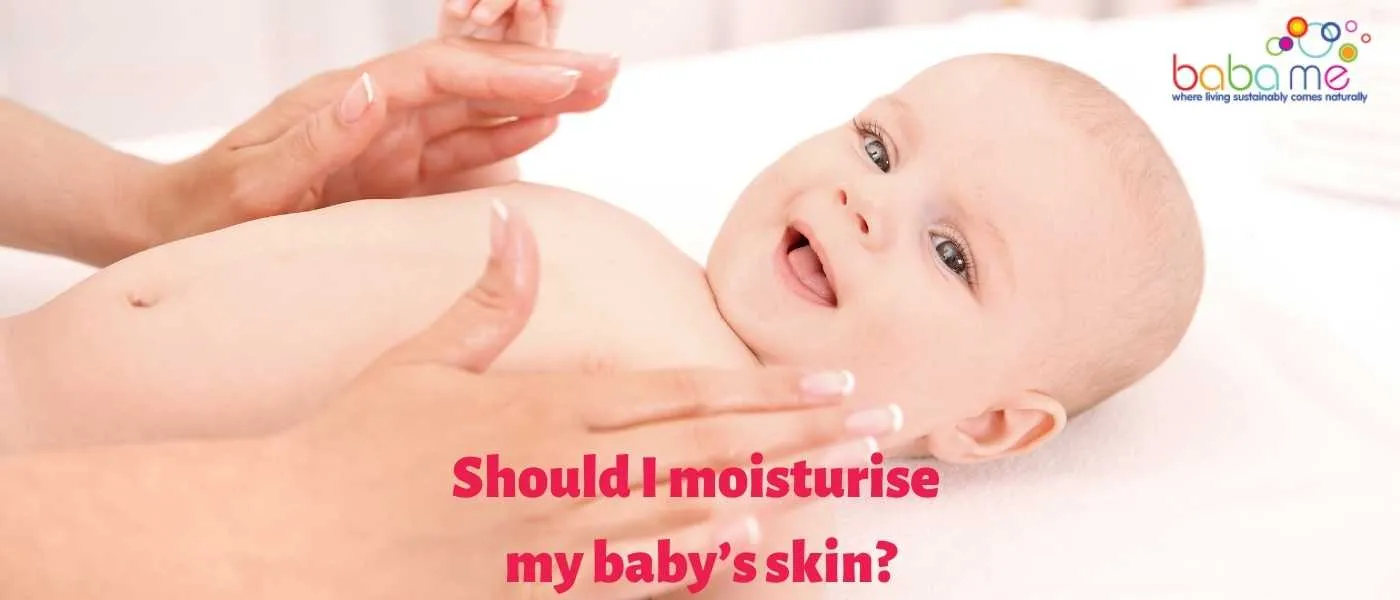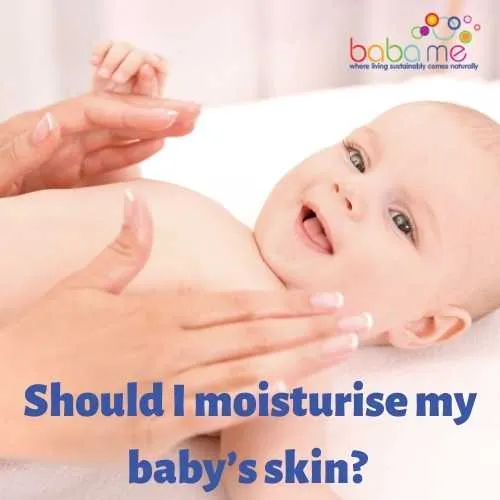‘As soft as a baby’s bottom!’ How many times have we heard that one??
But what if it’s not?
Baby skin, especially newborn skin, can become dry and irritated quite easily.
Your baby’s skin, although consisting of the same number of layers, is much thinner than yours. It’s literally paper thin. ‘Hard labor’ or not; your baby doesn’t have years’ worth of calloused skin to protect him/her from environmental changes and irritants, so what should you do if your baby’s skin becomes dry or irritated?
Should you turn to baby toiletries or keep it natural?
Well, that really depends on what is causing your baby’s skin complaint. All newborns will usually have some degree of dry skin or peeling. This is usually related to the amount of vernix (that greasy white substance coating the skin) they are born with.
Premature babies tend to have more at birth than buns that were baked right up to term, or heaven forbid, went overdue!!! Generally, the more vernix at birth, the less peeling after. Don’t worry though, this flaking skin isn’t hurting your newborn and will usually go away on its own.
Don’t be tempted to pick at it or try to exfoliate the skin as this may cause trauma to the skin and result in infection.
If your baby develops dry, red patches which tend to flare up every now and again, they may be suffering from eczema or atopic dermatitis.
This is rare in the period straight after birth but can develop in the weeks and months afterward. Triggers may be topical, such as creams and detergents; or dietary, such as dairy, wheat, or soy.
Avoiding triggers and daily moisturizing can help to avoid and control flare-ups. Using natural, healing, mild and non-toxic moisturizers are especially important since inflammation can affect the skin’s ability to act as a barrier.
If your baby suffers from excessively dry, rough, or scaly skin then it may be caused by a genetic condition called ichthyosis. Frequent moisturizing can help to relieve symptoms but the management of ichthyosis is likely to require a combination of treatments.
Be sure to discuss any skin complaints with your midwife, health visitor or GP!
So, what if your bub doesn’t have any signs of dry skin?
Is it O.K. to moisture it anyway? Of course, it is! We all benefit from a bit of TLC and what better way than a bit of baby massage for your little one?
There are lots of benefits to baby massage: it’s calming, aids digestion, promotes bonding with mum & dad, and helps with brain development – especially if you use this time for songs and games.
Wondering which products to use? Well, there are lots to choose from out there, but remember the BabaMe cardinal rule…Keep it natural!
Remember, your baby’s skin is much thinner than yours. It isn’t as far for compounds to travel before they reach the blood. At birth the skin isn’t a very good barrier to things applied topically – some may get absorbed.
If you don’t need to apply anything in the first month, then don’t!
By around 4 weeks (longer for premature babies) the skin should be developed enough to tolerate mild baby products. The skin continues to develop throughout childhood though, so make sure you stick to natural & non-toxic products as your little one grows.
Take Aways
•Baby skin is thinner and more delicate than adult skin, making it susceptible to dryness and irritation.
• Newborns often have some degree of dry skin or peeling due to the amount of vernix (a greasy white substance coating the skin) they are born with. This usually goes away on its own.
• If your baby has eczema or atopic dermatitis, triggers may be topical (e.g., creams and detergents) or dietary (e.g., dairy, wheat, or soy). Avoiding triggers and daily moisturizing can help to avoid and control flare-ups.
• If your baby suffers from excessively dry, rough, or scaly skin, it may be caused by a genetic condition called ichthyosis which requires treatment beyond just frequent moisturizing.
• Even if your bub doesn’t have any signs of dry skin, you can still moisturize their skin! Baby massage has many benefits including promoting bonding between parent & child while also aiding digestion & brain development.







